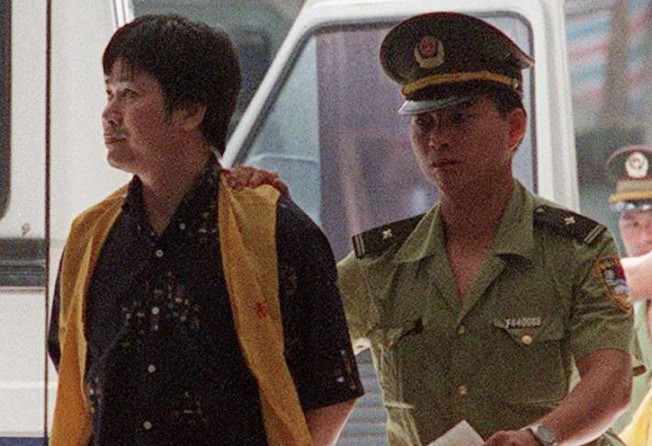Legal concerns over Hong Kong bookseller case has echoes of diplomatic fuss caused by 1999 arrest
Gang member Wu Man was picked up in Thailand and jailed in mainland China for planning kidnaps in Hong Kong, among them Li Ka-shing’s son

Concerns over Hong Kong’s fraught judicial relationship with the mainland may have spilled onto the streets of the special administrative region, but signs of the problems to come first emerged almost two decades ago in a strikingly similar case to that at the heart of yesterday’s protest.
On July 14, 1999 Hong Kong resident – and crucially given the incident’s proximity to the city’s 1997 return to mainland rule – British National Overseas passport holder, Wu Man , was picked up at gunpoint outside a hotel in the Thai capital, Bangkok by mainland agents.
One of the booksellers who disappeared, Gui Minhai – a Hong Kong resident and Swedish national – was also picked up in Thailand.
Within days and without any formal deportation or extradition procedures, Wu was in public security bureau custody at the Kemulang detention centre in Guangzhou.
The diplomatic fuss kicked up by the British government over what they – and many in Hong Kong – saw as Wu’s extrajudicial removal failed to gain traction largely because Wu was a member of the notorious Hong Kong crime gang, led by executed kidnap kingpin “Big Spender” Cheung Tze-keung.
In stark contrast to the relatively muted reaction Britain has had to the bookseller disappearances, the Wu case went right to the top with then prime minister Tony Blair dragged into the affair.
Top UK officials demanded consular access to Wu both while he was in detention and when he was tried and jailed for 11 years by a court in Guangzhou. Neither demand was granted
The crime he was jailed for – planning kidnaps in Hong Kong, among them Li Ka-shing’s son Victor Li Tzar-kuoi, while on the mainland as part of Big Spender’s gang – was never a charge placed against him in Hong Kong.
A Post leading editorial article at the time read: “More facts need to be urgently disclosed by the three governments involved in this disturbing case.
“It may be all actions followed proper procedure perfectly. If so, those procedures should be made public. It is time for the Thai police and Foreign Ministry, the SAR Security Bureau and Guangzhou police to explain their actions.”
This week, former secretary for justice Elsie Leung Oi-sie told the Post Hong Kong residents could face legal consequences on the mainland if they have broken mainland laws, even if they did so in part in Hong Kong.
In doing so, without mentioning Wu Man, she cited the Big Spender case as an example, saying that “to plan an offence on the mainland which is to occur elsewhere is treated as a criminal act justifiable on the mainland.
“Hong Kong people should not assume they would not be arrested for acts which contravene the mainland’s laws ... simply because of their capacity as Hong Kong residents,” Leung added.